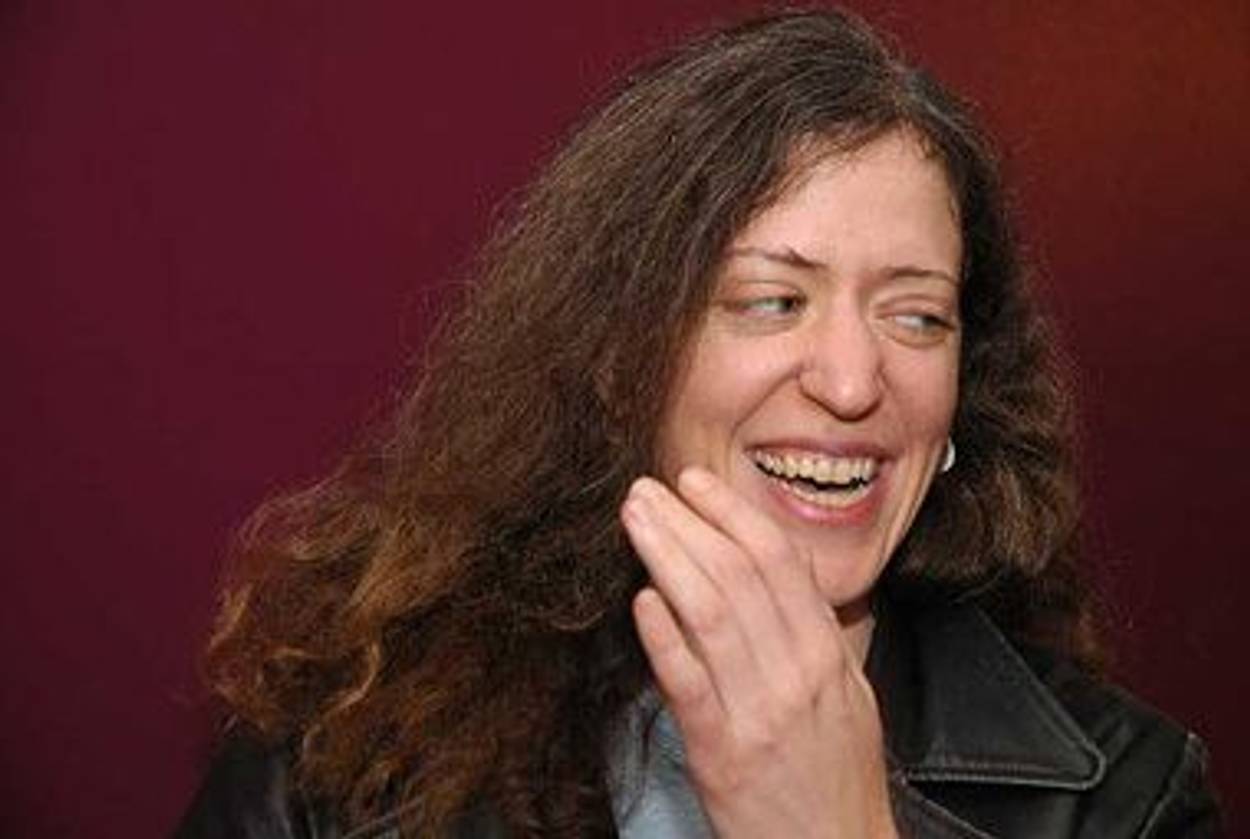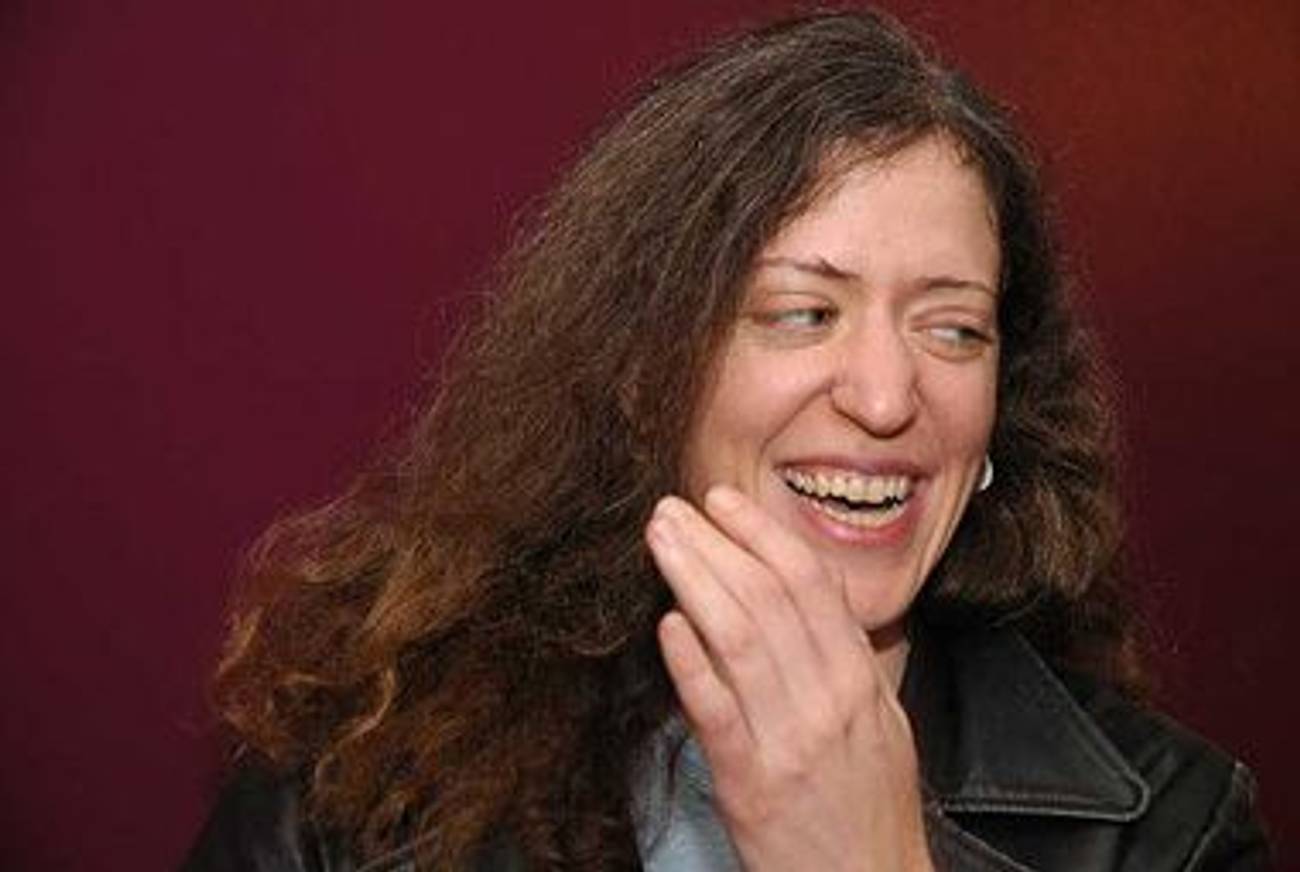Final Verse
In the poems of Silver Roses, the late Rachel Wetzsteon—who took her own life last year—is still very much alive




The poet Rachel Wetzsteon took her life on December 24, 2009. I can’t claim to have known Rachel very well: I met her less than a dozen times, usually at the annual West Chester University poetry conference, and we corresponded after I reviewed her third book, the wonderful Sakura Park. About her private life, and the griefs that led to her suicide, I knew nothing at all. But the admiration I had for her poetry made me feel a certain connection to her, beyond what our actual acquaintance justified. As a poet, I was inspired by a member of my own generation writing verse that was so intelligent, musical, and movingly self-exposed. So when I learned about her death, at the age of just 42, it affected me strongly; I had assumed that I would be reading Rachel and observing her growth as an artist for many years.
Rachel’s suicide was not something her work predicted—in the way that, say, Sylvia Plath’s poetry toys with and threatens suicide—but the person we come to know in her poems is deeply acquainted with sadness, loneliness, fear, and doubt. (This is one of the reasons I felt so drawn to them.) Like Philip Larkin, Wetzsteon—now that I’m talking about her work, the last name seems more appropriate than the familiar first—had the rare gift of writing about suffering without falling prey to histrionics or self-pity. “At least/ I won’t be someone who, smiling too often,/ gives too much away,” she writes in “A Bluff,” and strong feeling is something her poetry never gives away. Her deft rhymes and meters, her allusiveness, and her guarded irony are all ways of containing feeling, and thereby heightening it. As she writes in “Commands for the End of Summer”:
Deepen,
leaves, not with what
has made us sorry but
with what was profound about that
sorrow.
Make me
spontaneous,
gathering winds, but don’t
blow so giddily I teeter
too much.
That poem, from Sakura Park, is one of many that seem even more fraught and moving now, when Wetzsteon’s death has shown how hard she had to struggle to keep her balance. Certainly it is impossible to read her new book, Silver Roses(Persea, $16.50), without sensing the shadows retroactively cast by her suicide. (The collection, her fourth and presumably last, was in preparation when she died.) The first poem in the book, “Among the Neutrals,” is a series of haiku responding to an image in the Inferno: Dante assigns the neutrals, “those/ who lived without disgrace and without praise,” to limbo, since even their sins were not positive enough to merit entry into hell. Wetzsteon finds ingenious, wittily concrete ways to bring their predicament home: “How could we not know/ we were drowning in huge tubs/ of lukewarm water?” And then comes the fourth haiku:
Even the poor souls
lower down in the sad wood
stood up for something.
She is counting on the reader to know that the “sad wood,” in the seventh circle of the Inferno, is where suicides are punished: Their souls are turned into gnarled trees, which bleed and wail when their branches are snapped off. These lines, coming on the first page of Silver Roses, might be taken as a romantic indulgence of suicide—better to be a “poor soul” than a tepid one. But in fact, Silver Roses, like Wetzsteon’s earlier work, is admirable above all in its refusal of such sentimentality. The poet is often sad, but she doesn’t glamorize sadness; she knows that it is right to affirm life, which makes the moments when she’s unable to do so all the more powerful. She critiques her own morbid tendencies in “Ex Libris”:
Ballpoint in hand
I mourned corpses by moonlight,
cooed at sightless embryos
safe in their petri dishes
until these sad rites came to feel
as natural as breathing.
Perhaps they were natural.
But so is breathing,
and so is praise,
etching our silver nights and golden days.
This poem is from the third section of Silver Roses, which is the most painful part to read precisely because it is the most hopeful. This group of poems chronicles the happy, complicated growth of a new romance, and their real subject is Wetzsteon’s ambivalence about happiness. Loneliness and the longing for companionship are one of the constant themes of her work; in art and life, Wetzsteon makes clear, she has grown accustomed to melancholy, and knows how to make use of it. She is reluctant, then, to give up solitude, which is such an important condition of her writing. “I must face my fate like Estragon, asking/ What do we do now, now that we are happy?” she writes in “Halt!” In “Interruptus,” poetic inspiration literally competes with sex for her attention:
There was a lull, a break from bliss
when I turned to face the window
looking for all the world, you said,
“like I was composing a new verse.”
But the poem goes on to reconcile art and life, insisting, “I stroke you with both tangible hands/ and feet unstressed or thudding”—the “feet,” in this case, being the iambs of a poem. The poet’s tentative joyfulness is summed up in the last image of the title poem, which is the last poem in the collection. The silver rose Wetzsteon has in mind is the token that the young lover Octavian gives to his beloved Sophie in Der Rosenkavalier, in that opera’s most ravishingly romantic scene. In her poem, Wetzsteon remembers seeing the opera with previous companions, who failed to inspire Octavian-like bliss:
I went with others, threw
bouquets and caution to the whirling wind,
believing that the rhapsody on stage
would waft its wonders up to our cheap seats;
but mirrors can be beautiful fierce cheats,
delusions of an oversmitten mind …
In the final stanza, however, we see the poet on the verge of fulfillment, planning to watch Der Rosenkavalier on television with her new love: “and I’ll be there upon the stroke of eight,/ bearing in my trembling ungloved hand/ a silver rose for you.” The gender reversal in that image makes it, I think, especially moving. Wetzsteon is Octavian offering the silver rose, not Sophie choosing whether to accept it, and the one who makes the offer bears the risk of rejection.
If you were to read this poem, and the whole book, not knowing anything about Rachel Wetzsteon, you would not necessarily care whether the relationship she is writing about flourished or failed. As she herself would certainly have insisted, a poem is a poem, not a diary entry; its job is to communicate an emotion, and “Silver Roses” beautifully captures the experience of “trembling,” vulnerable love. But it is impossible to unknow what one knows, and every reader of Wetzsteon’s New York Times obituary was made aware—regrettably, perhaps—that her suicide came after “she had been severely depressed in recent months, partly over the breakup of a three-year romance.” Presumably this is the romance whose birth-pangs we read about in Silver Roses; and this cannot help making the book painfully poignant. Reading Wetzsteon’s poetry means being drawn into her loneliness and her hope:
this closeness all the more delicious for arriving late
[is] prodded, haunted, pierced by doubting voices from the past
who say, Pack up your things and go, this comfort cannot last,
for you are destined now and always for another scene
where you lance boils, sport braces, brood, and wear a size fourteen,
live wholly and quite happily upon an island where
the smallest tender gesture would be more than you could bear.
Rachel does not yet belong to the past; but Silver Roses is a posthumous work, and posthumousness is the first stage of becoming part of the past, part of literature, which is what every serious poet hopes for. If she is still being read a generation from now—and I hope she is—young readers will probably think about her in the same way that we think about figures like Plath or John Berryman—as a poet who was a suicide, whose suicide is part of her literary identity. But to have known her, even slightly, as a living person, with all the freedom and uncertainty of a life still in its prime, and then to see her transformed into something closed, fully achieved, irretrievably past—this has been, for me, an uncanny and piteous enlightenment.
Adam Kirsch is a poet and literary critic, whose books include The People and the Books: 18 Classics of Jewish Literature.